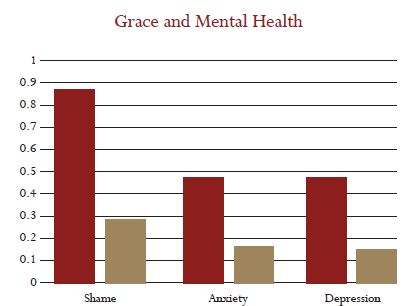New Creatures in Christ
Daniel K Judd
Daniel K Judd was a professor of ancient scripture at BYU when this was written.
 Simon Dewey, Christ in America. ©Intellectual Reserve, Inc.
Simon Dewey, Christ in America. ©Intellectual Reserve, Inc.
The Book of Mormon prophet Alma taught the people of Gideon, “There be many things to come; and behold, there is one thing which is of more importance than they all—for behold, the time is not far distant that the Redeemer liveth and cometh among his people” (Alma 7:7). In addition to the many blessings that have come to humankind through the mortal ministry and life of Jesus Christ, prophets, both ancient and modern, have also explained the eternal significance of the Savior’s death and Resurrection. President Howard W. Hunter taught the following: “The doctrine of the Resurrection is the single most fundamental and crucial doctrine in the Christian religion. It cannot be overemphasized, nor can it be disregarded. Without the Resurrection, the gospel of Jesus Christ becomes a litany of wise sayings and seemingly unexplainable miracles.”[1]
While the general purpose of this chapter is to review the historical and doctrinal significance of the Atonement and Resurrection of Jesus Christ, the specific intent is to serve as an invitation for us as individuals, families, and a community of believers to continue our journey in becoming, in the words of the Apostle Paul, “new creatures” (see 2 Corinthians 5:17), even new creatures in Christ.
The process of becoming men and women of Christ (see 3 Nephi 27:27) often includes inspired thoughts and feelings that come to both heart and mind. Many years ago when I was serving as a young missionary, my companion and I were teaching a young couple about the principle of restitution as a part of the process of repentance. As we were discussing the importance of doing “all we can do” (2 Nephi 25:23) to make the appropriate restitution for the sins in our lives, I began to feel uneasy as I remembered a poor choice I had made several years earlier for which I had never made amends. I also sensed the hypocrisy of asking this couple to live a principle that I was not fully living myself. When I was twelve years old, I stole a copy of Sport Magazine from a store in my hometown of Kanab, Utah, for which I had never made any attempt at restitution. After taking some time to think about what I had done and what I could do to make things right, I decided to write a letter of apology to Neil Crosby, the owner of Kanab Drug. Brother Crosby was also my neighbor and a member of the Kanab North Ward, the ward in which I had been born into and grown up in as a young man. In addition to my apology and asking Brother Crosby’s forgiveness, I included a check for fifteen dollars to cover the cost of the magazine I had stolen and to make up for the interest that had accrued in the intervening years.
Imagine my surprise when I received a letter from Brother Crosby a few weeks later that read something like this, “Dear Elder Judd, thank you for your letter and for your apology; I forgive you.” His letter continued, “I remember how disappointed I was the night I watched you take that magazine from my store without paying, but I always hoped the day would come when you would make it right.” In addition to the letter, Brother Crosby had returned my check and also included a check he had made out to me for fifty dollars. He finished his letter by thanking me for my honesty and wishing me continued success on my mission. While some would say that I “made money” on that particular sin, a more inspired response would be to express gratitude for the support of a good neighbor, and even more importantly, the grace and mercy of a loving God and the promise that he will “consecrate [our] afflictions” and even our sins “for [our] gain” (2 Nephi 2:2) as we approach him with “a broken heart and a contrite spirit” (2 Nephi 2:7).
Many years later, one of my missionaries with whom I was serving in West Africa asked me an interesting question after listening to the story I have just shared with you. “President,” the missionary asked, “is sin something we must experience to receive the full blessings of the atonement of Christ?” While I chose to answer the missionary’s question by reading from the writings of the Apostle Paul to the Romans (see Romans 6:1–2), the question has an interesting history.
In the early part of the twentieth century, there was a Russian mystic and self-described prophet by the name of Grigori Rasputin, whose false teachings on grace along with his reported licentious behavior have been identified by some scholars as a contributing factor to the corruption of the administration of Tsar Nicholas II of Russia and the downfall of the Romanov Dynasty.[2] Rasputin taught that “without sin there is no life, because there is no repentance, and if there is no repentance, there is no joy.”[3] Rasputin’s assertion that one should sin as a means of experiencing God’s grace gained a following of those who embraced his distorted doctrine. Sadly, Rasputin’s life embodied what is described in the Epistle of Jude as “ungodly men, turning the grace of our Lord into lasciviousness” (Jude 1:4).
The Apostle Paul’s answer to Rasputin’s gross immorality and my missionary’s honest question is found in the sixth chapter of Romans when Paul asked the rhetorical question, “Shall we continue in sin, that grace may abound?” Paul’s emphatic reply was, “God forbid. How shall we, that are dead to sin, live any longer therein?” (Romans 6:1–2). In addition to his passionate warning against sin, Paul is also teaching the principle that once our hearts are truly changed, we, in the words of the Zarahemla Saints, “have no more disposition to do evil, but to do good continually” (Mosiah 5:2). This isn’t to say that after experiencing this “mighty change” (Alma 5:12) we won’t ever sin again, but when we have experienced a change of heart, both our motives and actions change. Note the doctrinal contrast between the King James and Joseph Smith Translations of 1 John 3:8–9.
The scriptural phrases in the King James Version that read “He that committeth sin is of the devil” and “Whosoever is born of God doth not commit sin . . .” can be discouraging for those of us who are diligently striving to keep the commandments but who still fall from time to time. The King James Version implies that once a person is born again, they will never sin. The Joseph Smith Translation of the same texts reads, “He that continueth in sin is of the devil” and “Whosoever is born of God doth not continue in sin” (JST, 1 John 3:8–9). From the JST we learn that faithful people sin, but they honestly strive to repent and not continue to transgress the laws of God.

Elder Dallin H. Oaks taught the following to those who believe that they are better off to have sinned and repented than never to have sinned at all: “Some Latter-day Saints who think repentance is easy, maintain that a person is better off after he has sinned and repented. ‘Get a little experience with sin,’ one argument goes, ‘and then you will be better able to counsel others and sympathize with others. Anyway, it won't hurt to sin a little.’” Elder Oaks continued: “I plead with you, my brothers and sisters, my young friends and my older friends, avoid transgression! The idea that one is better off after one has sinned and repented is a devilish lie of the adversary.”[4]
After the Apostle Paul’s emphatic response, “God forbid,” to his question about whether we should deliberately sin in order to experience God’s grace, he continued his explanation by asking another of his seventy-four rhetorical questions[5] included in the Epistle to the Romans: “Know ye not,” Paul asked, “that so many of us as were baptized into Jesus Christ were baptized into his death?” (Romans 6:3). What is Paul asking by inviting us to be “baptized into Jesus Christ” and to be “baptized into [Christ’s] death? Paul’s answer to these question leads us to a greater understanding of the Savior’s death and Resurrection: Paul answered:
Therefore we are buried with him by baptism into death: that like as Christ was raised up from the dead by the glory of the Father, even so we also should walk in newness of life.
For if we have been planted together in the likeness of his death, we shall be also in the likeness of his resurrection:
Knowing this, that our old man is crucified with him, that the body of sin might be destroyed, that henceforth we should not serve sin. (Romans 6:4–6)
Paul is using the literal death and Resurrection of Jesus Christ as symbolic representations to invite the reader to put to death the natural man within each of us, through faith in Christ, repentance, and baptism, that we may come forth as “new creature[s]” (2 Corinthians 5:17) in Christ to sin no more. British pastor and theologian Charles Spurgeon (1834–92) gave the following illustration of what it means to repent and to be “baptized unto [Christ’s] death” and become a “new creature in Christ.” While the original source for the story can’t be identified, Spurgeon believed the story is from the life of St. Augustine, the fourth-century bishop in northern Africa: “Augustine had indulged in great sins in his younger days. After his conversion he met with a woman who had been the sharer of his wicked follies; she approached him winningly and said to him . . . ‘Augustine, it is I,’ mentioning her name; but [Augustine] then turned round and said, ‘But it is not I; the old Augustine is dead and I am a new creature in Christ Jesus.’”[6]
 Augustine, AD 354 – AD 430. Charles Spurgeon,
Augustine, AD 354 – AD 430. Charles Spurgeon,
Spurgeon’s Sermons, 19:353.
As each of us strives to repent of our sins and be “buried with [Christ] by baptism into death” and is blessed to “walk in newness of life” (Romans 6:4), we join with other disciples from the beginning of time as witnesses of the Atonement, death, and the Resurrection of the Savior.
The infinite Atonement of Jesus Christ makes this change possible, and has meaning for each of us no matter the degree or nature of our sins. President Boyd K. Packer taught, “Save for those few who defect to perdition after having known a fulness, there is no habit, no addiction, no rebellion, no transgression, no offense exempted from the promise of complete forgiveness.” In the same conference address, President Packer continued by describing the connection between our sins, small and great, and the Atonement of Christ:
When an offense is minor, so simple a thing as an apology will satisfy the law. Most mistakes can be settled between us and the Lord, and that should be done speedily (see D&C 109:21). It requires a confession to Him, and whatever obvious repairs need to be made. . .
To earn forgiveness, one must make restitution. That means you give back what you have taken or ease the pain of those you have injured. But sometimes you cannot give back what you have taken because you don’t have it to give. If you have caused others to suffer unbearably, . . . it is not within your power to give it back.
There are times you cannot mend that which you have broken. Perhaps the offense was long ago, or the injured refused your penance. Perhaps the damage was so severe that you cannot fix it no matter how desperately you want to.
President Packer concludes his remarkable statement by describing the purpose and power of the Atonement of Jesus Christ:
Restoring what you cannot restore, healing the wound you cannot heal, fixing that which you broke and you cannot fix is the very purpose of the atonement of Christ.
When your desire is firm and you are willing to pay the “uttermost farthing” (see Matthew 5:25–26) the law of restitution is suspended. Your obligation is transferred to the Lord. He will settle your accounts.[7]
There are sins in our lives that have been or continue to be a part of us for which we could not or cannot make full restitution. There are also other problems we have in our personal lives, in the lives of our family members, for which we do not have the solution. A careful study of the teachings of the Savior and his servants reveal that these too, in the words of Abinadi, may be “swallowed up in Christ” (Mosiah 16:8) as we remain faithful to the sacred covenants we have made.
When confronted with the reality of sin, some of us deceive ourselves into believing that we are not guilty, or we may even come to believe there is no such thing as sin (see 2 Nephi 2:13). Sometimes we use the sins of others to justify our own. Amulek, reflecting on his own state of self-deception, stated: “I was called many times and I would not hear; therefore I knew concerning these things, yet I would not know” (Alma 10:6). Others fall into despair, what the Apostle Paul describes as “overmuch sorrow” (2 Corinthians 2:7) believing that their sins or other problems are beyond the redeeming power of Christ. One such individual who suffered from such feelings of despair is the Protestant reformer Martin Luther.
 Lucas Cranach the Elder, Martin Luther (1528).
Lucas Cranach the Elder, Martin Luther (1528).
When Luther was twenty-one years old, he entered the Augustinian monastery in Erfurt, Germany, to begin his training to become a priest. By his own account and the records of his peers, Luther was an exceptional and dedicated monk. His first year went well, but as his training progressed, he began to experience feelings of anxiety and despair. Luther did what many of us do when we experience such problems: he began to work harder, striving to be more faithful. Sadly (but instructively), instead of gaining strength, his depression and anxiety increased. In Luther’s own words, we read:
When I was a monk, I made a great effort to live according to the requirements of the monastic rule. I made a practice of confessing and reciting all my sins, but always with prior contrition; I went to confession frequently, and I performed the assigned penances faithfully. Nevertheless, my conscience could never achieve certainty but was always in doubt and said: “You have not done this correctly. You were not contrite enough. You omitted this in your confession.” Therefore, the longer I tried to heal my uncertain, weak, and troubled conscience with human traditions, the more uncertain, weak, and troubled I continually made it. In this way, by observing human traditions, I transgressed them even more; and by following the righteousness of the monastic order, I was never able to reach it.[8]
My clinical training and pastoral experience led me to believe, after reading much of what Luther wrote during his years in the monastery, that his emotional problems didn’t originate with sin, but were more psychological, doctrinal, and perhaps physiological in nature. The good news for Martin Luther, and for all of humankind, is that the Atonement of Christ isn’t just for those guilty of sin, the Savior’s sufferings are also for those who, in the words of the Book of Mormon prophet Alma, suffer “pains and afflictions and temptations of every kind” (Alma 7:11), including what King Benjamin described as “infirmities in body and mind” (Mosiah 2:11).
For ten years, Luther labored with increasing feelings of guilt, doubt, and compulsivity without finding relief. It wasn’t until after his leaders became frustrated with him and transferred him to Wittenberg University to pursue a Doctor of Divinity degree and he started to teach the Bible that Luther finally began, through diligent study and teaching of scripture, to find peace, or more precisely, the Prince of Peace, Jesus Christ.
 Daniel K Judd, W. Justin Dyer, & Justin B. Top, “Relationships among Grace and Mental Health: A Structural Equation Model,” Advances in the Measurement of
Daniel K Judd, W. Justin Dyer, & Justin B. Top, “Relationships among Grace and Mental Health: A Structural Equation Model,” Advances in the Measurement of
Religion and Spirituality. Symposium conducted at the meeting of the American
Psychological Association, New York City, March 2016.
Luther’s rediscovery of the grace of Christ was a key moment in the history of Christianity and was a major factor in preparing for the restored gospel. Elder Bruce R. McConkie described Luther’s work as “an Elias preparing the way for the Restoration.”[9]
While many have identified Luther’s dissatisfaction with the sixteenth-century Catholic Church’s sale of indulgences as being the catalyst that brought about the Protestant Reformation, I believe and have described at some length in an academic paper addressing the issue that while religious legalism was certainly a factor, a far more compelling dynamic was Luther’s own legalism related to his psychological concerns and spiritual insecurity.[10]
In March of 2016, my colleagues and I presented a paper at a conference of the American Psychological Association in Brooklyn, New York. We discussed the life of Luther and our findings of a recent study we conducted with 574 Brigham Young University students with respect to their experience with legalism, grace, and various measures of mental health. We found that the more the respondents believed that their salvation was primarily a result of their own good works (legalism), the higher were their scores on measures of shame, anxiety, depression, and obsessive-compulsive behavior (scrupulosity). When we examined the influence of grace with these same students, we found that those who understood and embraced the principle of grace had dramatically lower scores on these same measures.[11]
The following statement from Elder M. Russell Ballard warns of the dangers of becoming preoccupied with good works and not learning to embrace the grace of Christ:
No matter how hard we work, no matter how much we obey, no matter how many good things we do in this life, it would not be enough were it not for Jesus Christ and His loving grace. On our own we cannot earn the kingdom of God—no matter what we do. Unfortunately, there are some within the Church who have become so preoccupied with performing good works that they forget that those works—as good as they may be—are hollow unless they are accompanied by a complete dependence on Christ.[12]
Many of us first experience the goodness and grace of God when our sins have driven us to our knees and we have no other place to turn. Others come discover the Savior through afflictions of a different kind. In addition to the profound discourse from the prophet Alma mentioned earlier (see Alma 7:11–16), modern prophets have also taught that the Atonement of Jesus Christ is also for all who experience pain and affliction associated with physical and emotional concerns. While many of our prophet leaders have taught this hopeful doctrine, my first recollection of what has come to be known as the enabling or strengthening power of the Savior’s Atonement was taught by Elder Neal A. Maxwell in general conference in April of 1985. Elder Maxwell’s words are as follows: “The cumulative weight of all mortal sins—past, present, and future—pressed upon that perfect, sinless, and sensitive Soul! All our infirmities and sicknesses were somehow, too, a part of the awful arithmetic of the Atonement.[13] Elder Maxwell would later write, “Since not all human sorrow and pain is connected to sin, the full intensiveness of the Atonement involved bearing our pains, infirmities, and sicknesses, as well as our sins. Whatever our sufferings, we can safely cast our “care upon him; for he careth for [us]” (1 Peter 5:7).[14]
While I have been blessed throughout my life to serve and to work in various capacities that have allowed me to observe both the redemptive and strengthening blessings of the Atonement of Jesus Christ from a variety of perspectives, the three years Sister Judd and I lived in Ghana, West Africa, helped us understand God’s love for his children and our love for him in a different way.
The people of Africa have been described as having “very little of that which matters least and a great deal of that which matters most.”[15] One of the many expressions of “what matters most” to many Africans is found in a phrase that is common to most conversations and is also observed in the names people give their businesses and even on the windows of taxicabs and buses.
The phrase “by his grace” is common to the language of the rich and poor, educated and illiterate, the whole and the disabled. The African people acknowledge the sovereignty and graciousness of God. Rarely do they ask, “why” but most always “how can my life glorify God?”
One of our sister missionaries, Sister Lydia Abbot, joined the Church in Uganda when she was an adult, but escaped from her family and the jail in which her eldest brother had placed her when she announced that she was going on a mission. Her brother, once a bitter enemy of the Church, was eventually baptized and is now serving in a branch presidency—by his grace.
Elder Derrick Bagazwaga left a militant rebel army in Northern Uganda in which he was a soldier after hearing the restored gospel taught for the first time. After returning from serving his mission in Ghana, he is now preparing to marry his branch president’s daughter—by the grace of God.
 The phrase “By His Grace” is ever-present.
The phrase “By His Grace” is ever-present.
Eric Orlando, who currently serves as the chief auditor of the Supreme Court of Ghana, was baptized in the face of considerable political and family pressure. He would later assist the Church’s legal department in securing the land for continued use of the Accra Ghana Temple. He has also been instrumental in beginning a branch of the Church in his native village—by his grace.
The head of immigration at Ghana’s International Airport was baptized after being visited by his deceased father in a dream. When his father was alive, he had often warned his family not to look at the Latter-day Saint temple in Accra as they would drive by or they would be cursed. In the dream (which he experienced three different times on three successive nights), the father apologized for what he had told his son about the Latter-day Saints and instructed him to go to the same temple and be baptized for him as soon as possible. The son went to the temple and asked how he could baptize his father even though he was dead. The man was informed that he would first need to be baptized himself. He was later baptized (as was his father), along with his wife, who is the chief officer for British Airways in Ghana. Her conversion began in large part by observing the “mighty change” (Alma 5:12) her husband experienced by embracing the restored gospel—by his grace.
 Sister Kaye Judd and two children
Sister Kaye Judd and two children
from the Kpong Branch.
Several of my missionaries were born into countries in the midst of civil war. These courageous elders and sisters from Sierra Leone, Liberia, and South Sudan have found peace, hope, and stability. These missionaries know they have a loving Father. They have faith in Jesus Christ and his Atonement and are striving to learn and to follow the language of revelation through the Holy Ghost. They sustain our living prophets. The restored gospel has made all the difference—by his grace.
Missionaries travel to Ghana from Western countries and learn to wash their clothes in a bucket. They live in difficult circumstances including contracting malaria and a host of other diseases that sometimes lasts for the duration of their missions and beyond. They quickly learn to love the people, the Lord, the Savior’s servants, and his Church—by his grace. My eternal missionary companion, Sister Judd, while suffering with a serious illness has also been blessed with remarkable peace, good humor, and stability—by his grace
Missionaries from fifty-four different countries came together in a common cause to preach the restored gospel of Jesus Christ. There was very little racial or cultural tension as they learned to feast upon the words of Christ in the Book of Mormon. They learned to work hard, work smart, and to love the Lord and those they teach—by his grace.
Through the strengthening and enabling influence of the Savior, the good and meaningful lives these returned missionaries are living are testimonies of the living reality of the life, Atonement, death, and Resurrection of the Lord Jesus Christ.
Counterfeits
 Missionaries in the Ghana Accra Mission, Christmas 2013.
Missionaries in the Ghana Accra Mission, Christmas 2013.
With all of the beauty and power of the redemptive and strengthening dimensions of the Atonement of Christ, there are, however, cautions. President Ezra Taft Benson taught, “Whenever the God of heaven reveals His gospel to mankind, Satan, the archenemy to Christ, introduces a counterfeit.”[16] As has already been mentioned, the counterfeit of obedience and good works is known as “legalism,” the idea that we must earn a place in heaven by our personal righteousness. This is the false doctrine the prophet Lehi was addressing when he taught his son Jacob, “By the law no flesh is justified” (2 Nephi 2:5). The Apostle Paul, whose life as a Pharisee had been consumed with the law, taught, “For by grace are ye saved through faith; and that not of yourselves: it is the gift of God: not of works, lest any man should boast” (Ephesians 2:8–9).
The doctrine of grace also has a deceptive counterfeit. The technical term is “antinomianism,” but this counterfeit is better known by the term “cheap grace.” German theologian and pastor Dietrich Bonhoeffer warned, “Cheap grace is preaching forgiveness without repentance; it is baptism without the discipline of community; it is the Lord’s Supper without confession of sin; it is absolution without personal confession. Cheap grace is grace without discipleship, grace without the cross, grace without the living, incarnate Jesus Christ.”[17]
Cheap grace is the counterfeit the Apostle James was addressing when he stated, “Faith, if it hath not works, is dead, being alone” (James 2:17). While it is true that Martin Luther called the book of James an “epistle of straw”[18] because of what James had taught about the necessity of good works, there were other times Luther cautioned about the dangers of taking both good works or grace beyond what the Lord intended. Luther recorded, “Both groups, sin against the Law: those on the right, who want to be justified through the Law, and those on the left, who want to be altogether free of the Law. Therefore, we must travel the royal road, so that we neither reject the Law altogether nor attribute more to it than we should.”[19]
Conclusion
Becoming “new creatures” in Christ requires both his grace and our faith. Genuine faith in Christ is manifest in our obedience to his law, because his law is a manifestation of who he is. The Savior taught the ancient Nephites, “Behold, I am the law, and the light. Look unto me, and endure to the end, and ye shall live; for unto him that endureth to the end will I give eternal life” (3 Nephi 15:9). I remember sitting with a missionary who was demanding to return home early from his mission. He didn’t have any health concerns or worthiness issues that would justify him returning home, but he was convinced that he didn’t want to be a missionary.
He was a convert from Islam of just a few years and had made great personal sacrifices to embrace Christianity, be baptized, and come on a mission. “President,” he said, “I want to go home, and there is nothing you can say that will change my mind.” I responded by saying, “Elder, I want to go home too.” I explained to him that my daughter Jessi was being sealed in the Provo Utah Temple later that week, and I wasn’t going to be there. This sweet, wonderful elder then began to comfort me. He explained to me that I was the mission president and that I couldn’t go home; the missionaries loved and needed me. We both began to shed a few tears as we shared our sorrows. We read together the Savior’s words as he knelt in the Garden of Gethsemane: “Father, if thou be willing, remove this cup from me: nevertheless not my will, but thine, be done” (Luke 22:42). Like the Savior, we too felt angels “strengthening” us (Luke 22:43) as we made the decision that it was our Father’s will that we stay and work together to bless those whom we had been sent to serve. The elder remained in the mission field and fulfilled a wonderful mission. That night, both of us came a little closer to becoming the men our Father in Heaven would have us be, even “new creatures” in Christ—by his grace.
Notes
Notes
[1] Howard W. Hunter, “An Apostle’s Witness of the Resurrection,” Ensign, May 1986, 15.
[2] R. Kent Hughes, Romans: Righteousness from Heaven (Wheaton, IL: Crossway Books, 1991), 121.
[3] Grigori Rasputin, as quoted in Edvard Radzinsky, The Rasputin File (New York: Anchor Books, 2001), 240.
[4] Dallin H. Oaks, “Sin and Suffering,” in Morality (Salt Lake City: Deseret Book, 1992), 190.
[5] Bruce Kaye, The Argument of Romans with Special Reference to Chapter 6 (Austin, TX: Scholars Press, 1979), 14.
[6] Charles H. Spurgeon, Spurgeon’s Sermons, 19:353 (Kindle Edition).
[7] Boyd K. Packer, “The Brilliant Morning of Forgiveness,” Ensign, November 1995, 19–20; emphasis added.
[8] Martin Luther, in Luther’s Works, ed. Jaroslav Pelikan (St. Louis: Concordia Publishing House, 1955), 27:13.
[9] Bruce R. McConkie, Sermons and Writings of Bruce R. McConkie, ed. Mark L. McConkie (Salt Lake City: Deseret Book, 1989), 72.
[10] Daniel K Judd, “Clinical and Pastoral Implications of the Ministry of Martin Luther and the Protestant Reformation,” Open Theology 2, no. 1 (2016): 324–37.
[11] Daniel K Judd and W. Justin Dyer, “Relationships Among Grace, Legalism, and Mental Health in an LDS Sample: A Structural Equation Model” (forthcoming paper).
[12] M. Russell Ballard, “Building Bridges of Understanding,” Ensign, June 1998, 65.
[13] Neal A. Maxwell, “Willing to Submit,” Ensign, May 1985, 73; emphasis added.
[14] Neal A. Maxwell, Not My Will, But Thine (Salt Lake City: Deseret Book, 1988), 51.
[15] John B. Dickson, “The Gospel to All the World,” Ensign, May 2013, 41.
[16] Ezra Taft Benson, A Witness and a Warning, Ensign, November 1979, 31.
[17] Dietrich Bonhoeffer, Discipleship, ed. M. Kuske et al., trans. B. Green and R. Krauss (Minneapolis, MN: Fortress Press, 2003), 4:44.
[18] Martin Luther, Luther’s Works, ed. J. J. Pelikan, H. C. Oswald, and H. T. Lehmann (Philadelphia: Fortress Press, 1999), 35:362.
[19] Martin Luther, Luther’s Works, 27:13.
